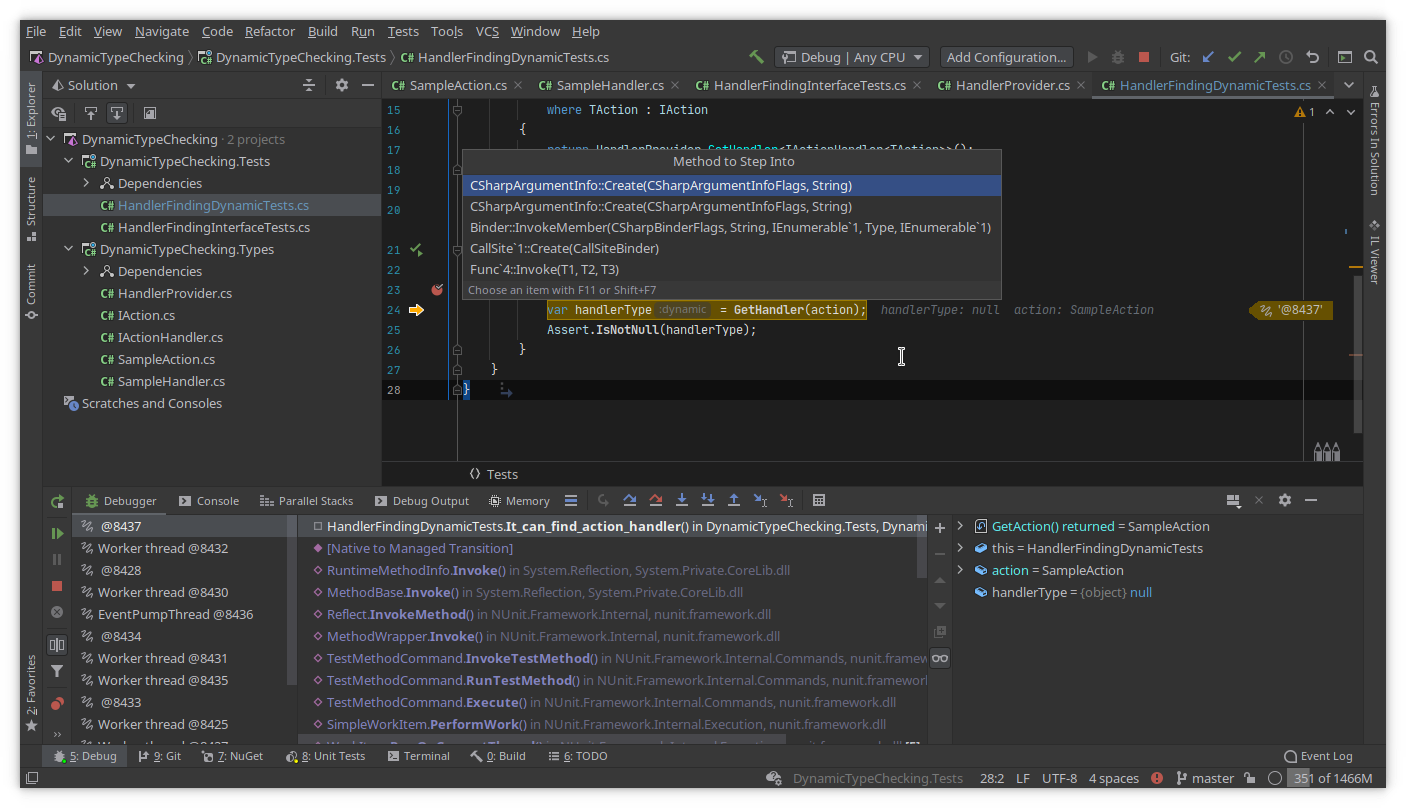Dynamic keyword in .NET
When I started my programming career I often heard that using dynamic keyword should be prohibited in the context of field declaration and return types. After many years I’ve just found out that there is a good reason to use dynamic as method return type when using reflection.
What is dynamic?
As many static typed languages C# requires to define a type for almost everything. Every type must be known at compile time. C# 4 introduces a new type, dynamic. The type is a static type, but an object of type dynamic bypasses static type checking. In most cases, it functions like it has type object. At compile time, an element that is typed as dynamic is assumed to support any operation. The code is valid at runtime, but any unforeseen errors are handled in runtime. When using System.Reflection most of the types are dynamic until casting occures.
The problem: finding a implementation
For our problem in question let’s imagine we are trying to implement an action handler for any action that is implementing IAction interface. We don’t want to register handlers for each and every action in one, central module but rather find corresponding type dynamically through reflection mechanizm in .NET. Let’s also define our action handler interface as follows:
public interface IActionHandler<in TAction> where TAction : IAction
{
void Execute(TAction action);
}
Let’s also assume that our data comes from simple text file so we don’t really know what action we are suppose to run until we are at runtime. To initialize action we’ll use Activator.CreateInstance. That allows us to create an instance of a type dynamically without using the type explicitly, e.g. like in one big switch statement. For using handler there is a static HandlerProvider implementation which selects type from correct assembly.
public static Type GetHandler<THandler>()
{
// ReSharper disable once PossibleNullReferenceException
return Assembly.GetAssembly(typeof(IAction))
.GetTypes()
.SingleOrDefault(x => typeof(THandler).IsAssignableFrom(x));
}
Casting action to an interface
Let’s try getting handler for our SampleAction by casting an action to derived interface. This can be done because Activator creates an instance of provided type which is implementing IAction interface.
private static IAction GetAction()
{
return (IAction)Activator.CreateInstance(typeof(SampleAction));
}
private static Type GetHandler<TAction>(TAction action)
where TAction : IAction
{
return HandlerProvider.GetHandler<IActionHandler<TAction>>();
}
In this case we cannot find action handler because provider is looking for generic implementation of IActionHandler<IAction> and there isn’t any. Through casting dynamic type to implemented interface we have lost irreversibly our original type of SampleAction.
Using dynamic type as method return type
What happens if we switch from casting our dynamic type do an interface and just leaving it dynamic? Let’s change GetAction definition to
private static dynamic GetAction()
{
return Activator.CreateInstance(typeof(SampleAction));
}
Now we are using dynamic as return type therefore it’s not handled as IAction but rather as a proper instance of SampleAction type. It can be seen while debugging GetHandler entry point. .NET actually uses System.Runtime.CompilerServices to manage types at runtime so that the type is initialized.

You can look at entire code here: mszynka@github/dynamic-type-checking
